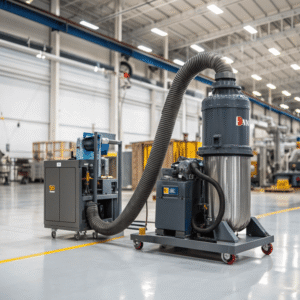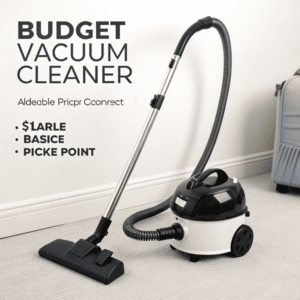Why Your Factory Needs a Heavy Duty Industrial Vacuum?
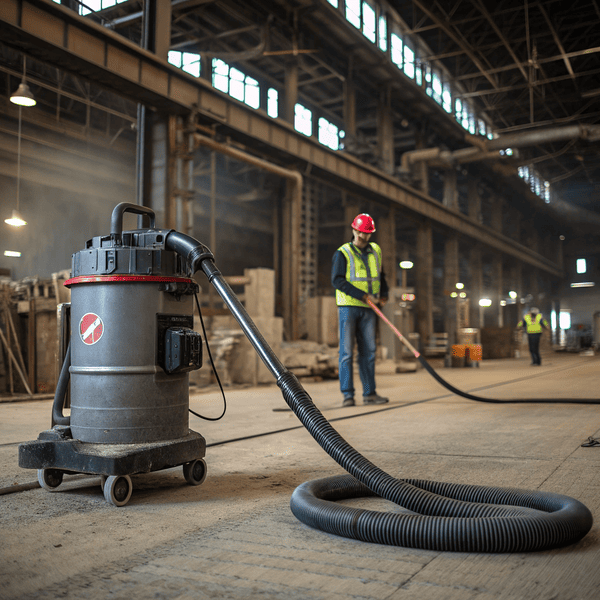
Factories create Factories create dust storms and piles of debris that ordinary cleaning[^1] can’t handle. Every week, I see teams struggle to keep work areas safe and machine lines clear.
[^1]: Exploring effective cleaning methods can enhance workplace safety and productivity.
and piles of debris that ordinary cleaning can’t handle. Every week, I see teams struggle to keep work areas safe and machine lines clear.
Heavy duty industrial vacuums work where brooms and basic vacuums fail. They remove hazardous dust, metal bits, and liquids in minutes, helping factories meet safety standards and prevent costly downtime.
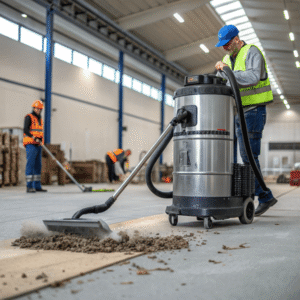
When I started working in manufacturing, I believed any vacuum would do. After watching cheap vacuums break and seeing machines choked with dust, I learned why industrial models matter. If your production floor is messy or you keep replacing old vacuums, these insights will save you time, money, and headaches.
What is the difference between commercial and industrial vacuums?
Commercial vacuums are designed for offices, shops, and everyday cleaning. Industrial vacuums are built for nonstop, tough cleaning in harsh, demanding workplaces.
Industrial vacuums have bigger motors, stronger bodies, and specialized filters[^1] for hazardous dust and liquids, far beyond commercial models.
[^1]: Learn about specialized filters to see how they protect against hazardous materials and improve air quality.
have bigger motors, stronger bodies, and specialized filters for hazardous dust and liquids, far beyond commercial models.
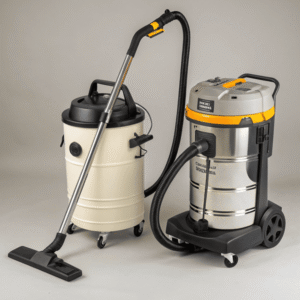
Commercial vacuums survive in busy offices and small businesses. They clean well but struggle in noisy, dirty production lines. Industrial vacuums use thicker steel or reinforced plastic. They move heavy particles, glass shards, and liquids that would stop a commercial vacuum in seconds. A commercial model is great for carpets and quick spills, but an industrial vacuum keeps working through metal filings, chemicals, and months of dust. Here is a comparison:
| Feature | Commercial Vacuum | Industrial Vacuum |
|---|---|---|
| Motor Power | 800-1500W | 1500-3000W+ |
| Tank Size | 10-25L | 30-150L |
| Build | Thick plastic | Steel/impact plastic |
| Filter System | Standard bag/HEPA | Advanced multi-stage |
| Debris Handling | Dust, crumbs, paper | Metal, liquids, hazards |
If you manage a space where downtime hurts the bottom line, industrial vacuums are a must. I saw a commercial vacuum break in two hours cleaning up after CNC work, but the industrial model lasted all year with no fuss.
Are industrial vacuums worth it?
Industrial vacuums can cost more up front, but they deliver long-term savings through fewer repairs, safer floors, and faster cleaning.
Yes, industrial vacuums are worth the investment for Yes, industrial vacuums[^1] are worth the investment for high-demand environments where regular models can’t keep up or constantly fail.
[^1]: Explore this link to understand how industrial vacuums can enhance efficiency and reliability in demanding settings.
where regular models can’t keep up or constantly fail.

When I upgraded to an industrial vacuum in my own shop, cleaning time dropped by half. Filters lasted longer, so I stopped buying cheap replacements every month. The tougher build means glass, metal chips, and wet messes no longer ruin the machine. If your factory runs shifts or processes heavy materials, you skip the frustration of broken hoses and jammed motors. Here’s what I learned:
Industrial Vacuums – Real Value
| Benefit | Impact | Example usage |
|---|---|---|
| Faster cleaning | More production time | Machine spills, daily sweep |
| Fewer breakdowns | Lower maintenance cost | Metal chips, tough liquids |
| Healthier air | Fewer sick days | Fine dust in assembly area |
| Regulatory ready | Passes inspections | Hazardous material cleanup |
Industrial vacuums pay off fastest in factories with high output, raw material debris, or large wet spills. For small shops, the upfront cost can be steep, but bigger spaces get the full power and savings.
What are industrial vacuums used for?
Factories and warehouses use industrial vacuums for cleaning floors, collecting hazardous dust, removing liquids, and safely disposing of metal shavings and chemicals.
Industrial vacuums help keep workspaces safe, machines running, and teams healthy by handling the toughest messes.
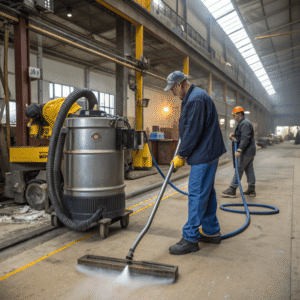
The right industrial vacuum helps in ways I didn’t expect. I use them to clear out heavy debris afterThe right industrial vacuum[^1] helps in ways I didn’t expect. I use them to clear out heavy debris after CNC machining, sweep up powder coatings, and safely collect small metal parts without damaging the vacuum or spreading toxic dust
[^1]: Discover how an industrial vacuum can enhance efficiency and safety in your workspace.
, sweep up powder coatings, and safely collect small metal parts without damaging the vacuum or spreading toxic dust. Workplaces with chemicals or oil spills rely on these machines to prevent injuries and pass health audits. Special models come with explosion-proof motors for places where flammable dust is a threat. Here are common uses:
Main Uses of Industrial Vacuums
| Use Case | Description |
|---|---|
| Floor cleaning | Sweeps up dust, scraps, spills |
| Hazardous dust control | HEPA filters for toxic dust |
| Metal debris removal | Picks up shavings, filings |
| Liquid spill cleanup | Handles oil, water, chemicals |
| Machine cleaning | Removes buildup fast |
I recommend every factory manager review all the places dust, scrap, or liquid build up. An industrial vacuum can fix most cleaning problems in less time and with fewer worker injuries.
Conclusion
Factories run safer and smoother with heavy duty industrial vacuums—they clean faster, last longer, and keep teams healthy.

